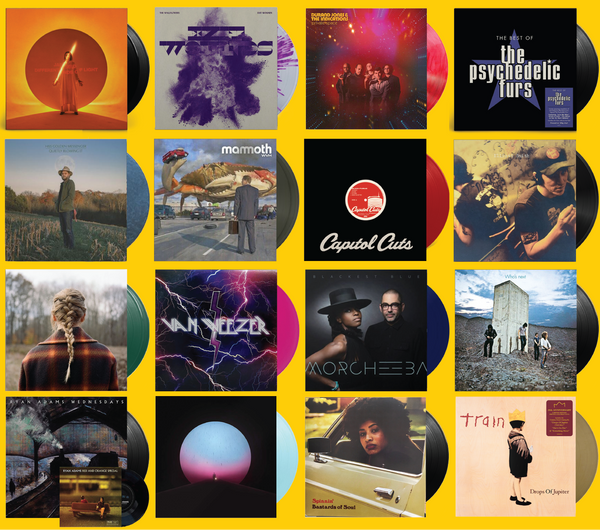
For the Record

Mavis Staples & Levon Helm - Carry Me Home
Iconic singer Mavis Staples is an alchemist of American music, and during her 70+ year career one of her most beloved musical moments was her riveting performance in Martin Scorsese's film' The Last Waltz,' performing "The Weight", with The Band, a moment that forged a life-long friendship between her and Levon Helm.

Maggie Rogers - Surrender
Maggie Rogers / Surrender - GRAMMY-nominated artist/producer/songwriter Maggie Rogers new album, Surrender, was released via Capitol Records on July 29, 2022. Co-produced by Kid Harpoon (Florence + the Machine, Harry Styles) and Rogers, Surrender is the follow-up to her massively beloved 2019 debut, Heard It in a Past Life, which entered Billboard's Top Album Sales chart at No. 1 and debuted at No. 2 on the Billboard 200. Praised by the likes of NPR, The New York Times, Rolling Stone, Pitchfork, TIME Magazine, and many others, Heard It in a Past Life landed Rogers a nomination for Best New Artist and went on to amass over one billion combined global streams.

Ural Thomas & The Pain - Dancing Dimensions
Ural Thomas is universally recognized as one of the most exciting singers remaining from the original soul era, and an active musical institution for over sixty years. His catalog has slotted into countless sweet, seductive mixtapes between James Brown, Otis Redding, and Stevie Wonder. Leader of the rhythm and blues vocal group The Monterays, his success brought him to Los Angeles where he caught the ear of industry bigwig Jerry Goldstein. Goldstein brought him into the studio with arranger Gene Page to record two landmark 1967 singles. Ural Thomas & the Pain have released two full length albums: 2016's self-titled release and 2018's The Right Time. They return with Dancing Dimensions, their third record together..

Olivia Newton-John - Physical
Physical is the eleventh studio album by English Australian singer Olivia Newton-John, released on 13 October 1981 by MCA Records. The album was produced and partly written by her long-time record producer John Farrar. Recorded and mixed at Ocean Way and David J. Holman's studio in Los Angeles, California, Physical became one of Newton-John's most controversial and sexual records, and her most successful studio album to date.

We Came As Romans - Cold Like War
Cold Like War is the fifth studio album by metalcore band We Came as Romans. It was originally released in 2017. It was the band's first album to feature new drummer David Puckett, who replaced longtime drummer Eric Choi, and their last with singer Kyle Pavone before his death in August 2018.

Caamp - Lavender Days
Lavender Days was written in the aftermath of a period of loss and heartache suffered by Taylor Meier. A great love, a great dog, his livelihood, his sanity... all gone in the same period when touring and every bit of human interaction was taken from him and the rest of the world. It was a humbling experience, and one that placed him firmly back in the spot that Caamp so often writes about - his Midwestern home and the life he lives there in the state of Ohio. It's the romanticism that Caamp approaches that simple life with that speaks to their volume of fans and is even further ruminated on in Lavender Days. It's about the in between days - the small pleasures and the forgotten disappointments.

The Black Keys - Dropout Boogie
As they've done their entire career, The Black Keys' Dan Auerbach and Patrick Carney wrote all of the material for their new album, Dropout Boogie, in the studio, and the album captures a number of first takes that hark back to the stripped-down blues rock of their early days making music together in Akron, Ohio, basements. After hashing out initial ideas at Auerbach’s Easy Eye Sound studio in Nashville, the duo welcomed new collaborators Billy F. Gibbons, Greg Cartwright, and Angelo Petraglia to the sessions, marking the first time they've invited multiple new contributors to work simultaneously on one of their own albums.

Monophonics - Sage Motel
Monophonics cordially invite you to attend the grand re-opening of the once thriving, once vibrant establishment, the legendary Sage Motel. A place where folks experience the highs and lows of human existence. A place where big dreams and broken hearts live, where people arrive at without ever knowing how they got there. It's where folks find themselves at a crossroads in life. So join us as we examine where the stories are told and experiences unfold... and sink into a soft pillow of soulful psychedelia... down at the Sage Motel.
